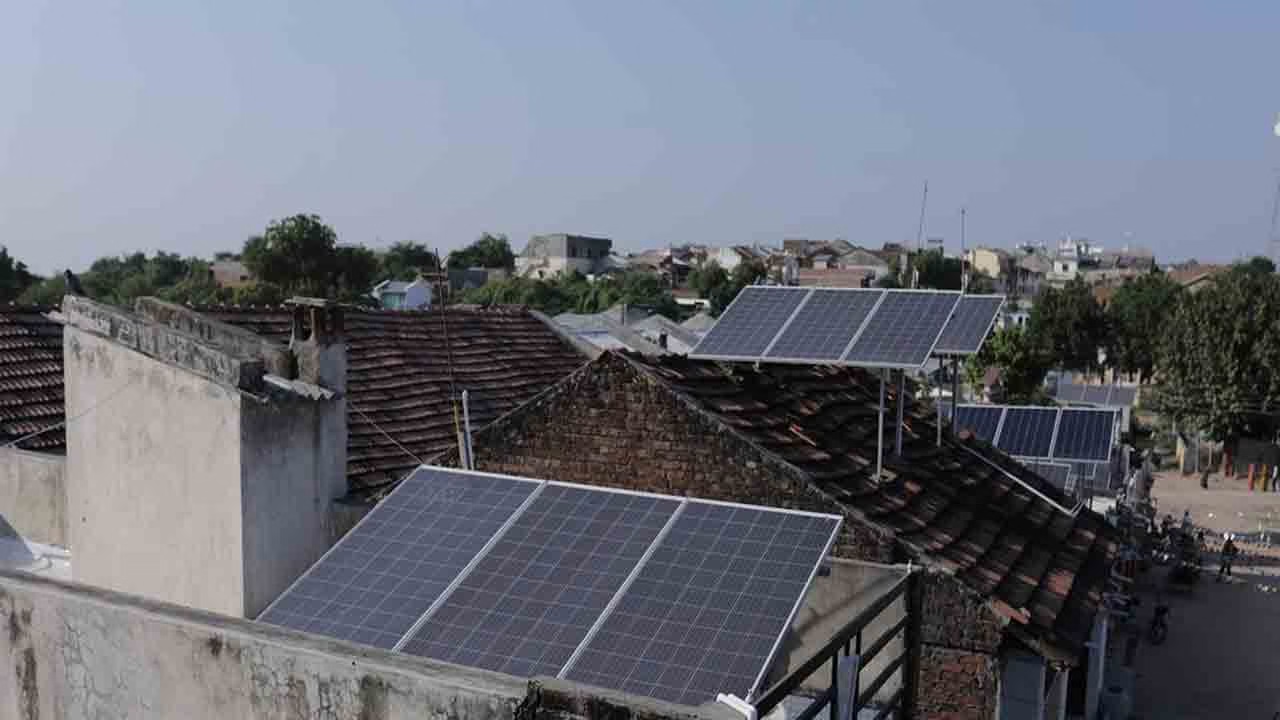A new research report has revealed that the increasing use of solar energy has placed an extraordinary financial burden of Rs 200 billion on grid-dependent consumers in the fiscal year 2023-24. This surge in solar energy adoption has led to a hike in electricity rates for consumers who still rely on the national grid, with rates increasing by Rs 2 per unit. The study highlights the inequality caused by the unregulated deployment of solar energy through net metering, warning that this trend could lead to even higher costs for grid-dependent consumers unless immediate action is taken at the government level.
The Financial Burden on Grid-Dependent Consumers
The report sheds light on the growing discrepancy between solar energy users and grid-dependent consumers. As more individuals and businesses switch to solar power, those who continue to rely on the national grid are facing increased electricity costs. The rise in solar energy usage has reduced the demand on the grid, which has created an imbalance in the distribution of electricity costs. With fewer consumers drawing power from the grid, the fixed costs of maintaining and operating the national grid are being distributed among a smaller group of consumers, leading to higher rates for those left behind.
The study estimates that the financial burden on grid-dependent consumers will continue to grow if no regulatory changes are made. If the grid demand decreases by just 5% due to the increasing adoption of solar power, grid-dependent consumers will face an additional burden of Rs 131 billion. This burden could more than double to Rs 261 billion if the demand drops by 10%.
Unregulated Solar Energy Deployment and Its Impact
One of the key factors contributing to this financial strain is the unregulated deployment of solar energy through net metering. Net metering allows consumers with solar panels to feed excess power back into the grid in exchange for credits, effectively reducing their electricity costs. While this system has been beneficial for solar power users, it has created a situation where grid-dependent consumers are left paying for the maintenance and operation of the grid without reaping the benefits of solar energy.
As solar installations grow rapidly, net metering has inadvertently shifted the financial responsibility onto those who cannot afford or choose not to invest in solar energy. The increasing number of solar users is not being matched by an equivalent reduction in grid infrastructure costs, leaving non-solar users to bear the financial load.
The Need for Policy Reforms
The report emphasizes the urgent need for policy changes and regulatory reforms to address this growing issue. Without action, the financial burden on grid-dependent consumers will only continue to rise, further exacerbating the inequality between solar and non-solar users. The study calls for a more balanced and regulated approach to the deployment of solar energy, ensuring that grid-dependent consumers are not unfairly burdened by the costs of maintaining the national grid.
Reforms could include revising net metering policies, implementing fair pricing structures, and introducing measures to balance the distribution of grid maintenance costs. Policymakers must also consider implementing incentives for low-income households and businesses to transition to solar power, thereby reducing the overall financial burden on grid-dependent consumers.
Additionally, it is crucial to create awareness among consumers about the implications of rapid solar energy adoption without proper regulation. The government should take proactive steps to ensure that the transition to renewable energy is managed in a way that is equitable for all consumers, regardless of their energy source.
The Potential Impact on Grid Stability
Apart from the financial burden, the unregulated surge in solar energy use also poses a risk to grid stability. As more consumers generate their own electricity, the demand for power from the national grid decreases, which can lead to underutilization of grid resources. This can destabilize the grid, making it less efficient and more vulnerable to power outages. If the trend continues unchecked, the long-term viability of the national grid could be jeopardized, affecting all consumers, including those who rely on solar energy.
It is essential for the government to address these issues in a timely manner to ensure the sustainability of the national grid while promoting the growth of solar energy. Creating a fair and balanced energy market will ensure that both grid-dependent and solar users contribute to the stability and maintenance of the national grid.
A Call for Urgent Action
The growing reliance on solar energy is a positive step toward sustainable energy consumption, but without proper regulation, it could lead to unfair financial burdens on grid-dependent consumers. The Rs 200 billion burden highlighted in the report is just the beginning. If left unchecked, this could result in even higher costs for those who cannot afford to transition to solar power. The government must take swift action to implement the necessary reforms and ensure that the benefits of solar energy are distributed fairly among all consumers.
By addressing these issues, Pakistan can ensure that the transition to solar energy is both sustainable and equitable, benefiting the entire population while maintaining the stability and efficiency of the national grid.



